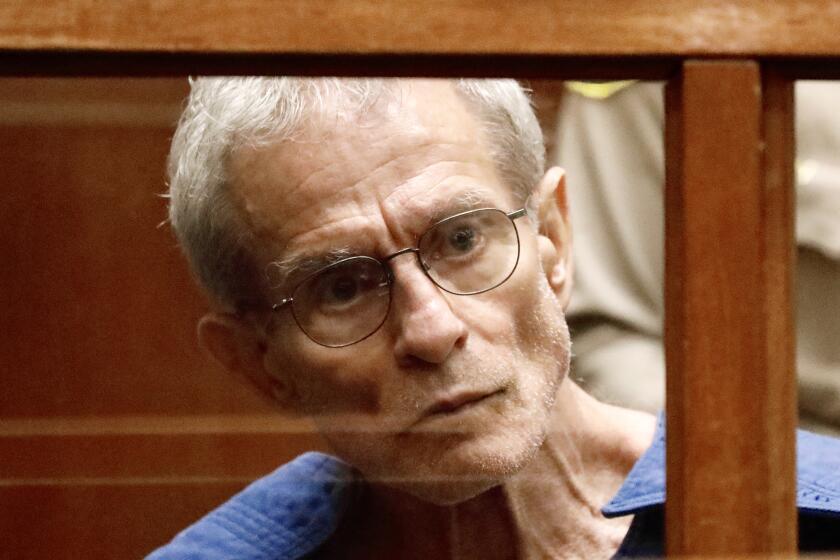LGBTQ ‘Black Lives Matter’ activists were watching Democratic donor Ed Buck, demanding justice
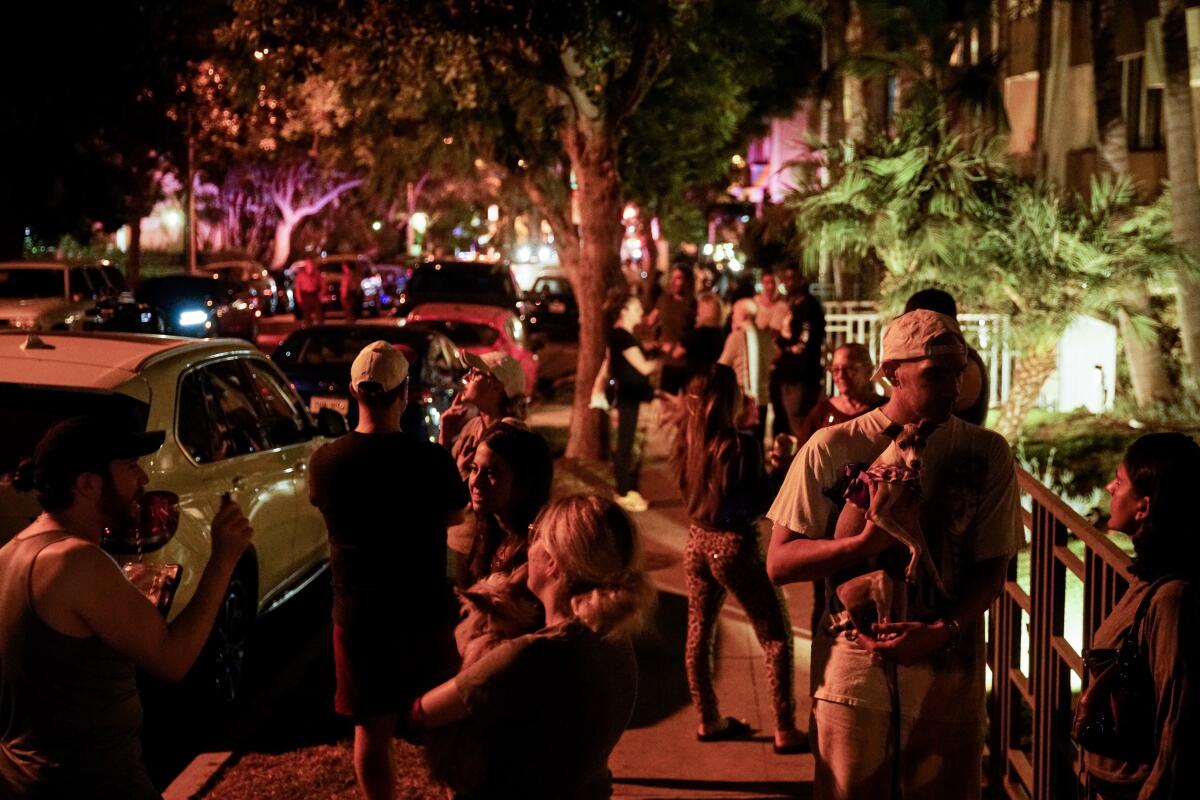
Jasmyne Cannick was speaking at a Democratic club meeting Tuesday night when her phone buzzed with a text: The police were raiding Ed Buck’s West Hollywood apartment.
His neighbors had been alerting Cannick, a political consultant and activist for the black LGBTQ community, about comings and goings at the location after two gay black men in less than two years died of drug overdoses in the influential Democratic donor’s home.
Buck’s arrest Tuesday, about a week after a third man overdosed in his apartment, was grim vindication for the black LGBTQ community, which has crusaded for more than two years to hold him accountable, even in the face of what some said was silence by many Democrats and LGBTQ activists in West Hollywood.
Many have likened the effort to the Black Lives Matter movement, formed after a spate of high-profile police shootings of young black men.
“Like America, the LGBTQ community is divided along racial lines, and that is reflected in West Hollywood. It is still not as welcoming to people of color and specifically those who are black,” Cannick said. “It took outside forces to bring change.”
Buck is accused of operating a drug house, with prosecutors alleging he lured in vulnerable men with money and shelter, then injected them with methamphetamine for sexual gratification. In the latest case, a 37-year-old man survived, but prosecutors say in court papers that Buck is still a suspect in the two overdose deaths.
Ed Buck, the Democratic donor who was recently accused of running a drug house in West Hollywood where two men have died, faces a federal criminal case in connection with one of the overdoses.
Buck’s attorney, Seymour Amster, could not be reached for comment Wednesday. In the past, he has said his client was a man with a “heart of gold” who invited troubled people into his home to help them.
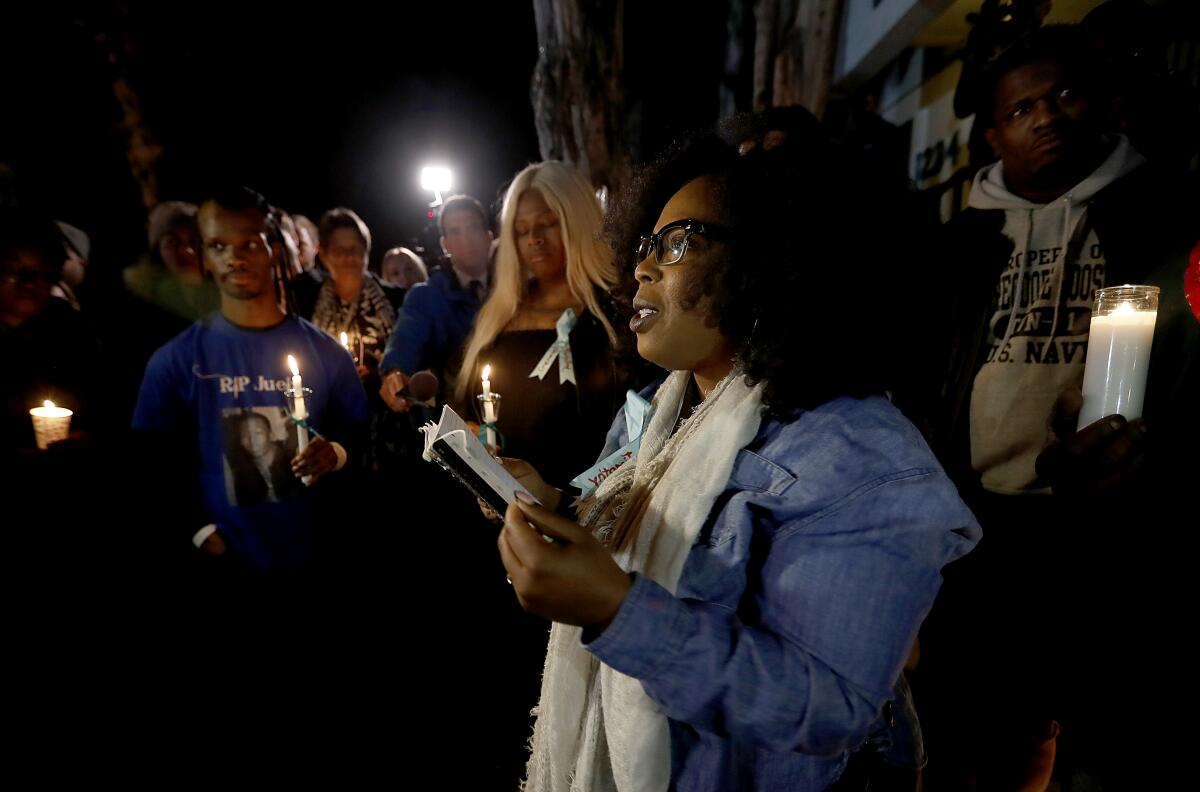
Buck’s status sowed doubts among Cannick and other black activists.
That doubt, she said, was reflective of how people felt about the criminal justice system, particularly how it relates to the value of black lives. But Cannick and others pressured law enforcement to investigate and kept the case in the public eye by protesting.
Jerome Kitchen, a black gay activist and godbrother of the first victim, organized a group to pass out fliers warning young gay men about Buck.
“We passed them out everywhere, in the neighborhood, and in known areas for homeless young gay males — anywhere we thought he would troll,” Kitchen said.
He and others felt Buck’s arrest was too little too late.
“He should’ve been arrested after the first time…. I think the message that was sent was young gay black men don’t count,” Rep. Karen Bass (D-Los Angeles) told The Times. “I think if he had been victimizing young white men, there would’ve been an outrage.”
Bass said that when she realized that Buck had donated to her campaign, she was repulsed and sent the money to the family of the first victim.
The latest case involves a man identified in court papers as Joe Doe, who went on Sept. 4 to Buck’s apartment, where Buck “personally and deliberately” administered a large dose of methamphetamine, prosecutors said in court papers. Concerned he was suffering an overdose, the man left the apartment to get medical help.
He returned to Buck’s apartment Sept. 11, when Buck again injected him with “two dangerously large” doses of methamphetamine, prosecutors said.
Buck then allegedly thwarted the man’s attempts to get help. The man eventually fled the apartment and called 911 from a gas station. He was taken to a hospital for treatment.
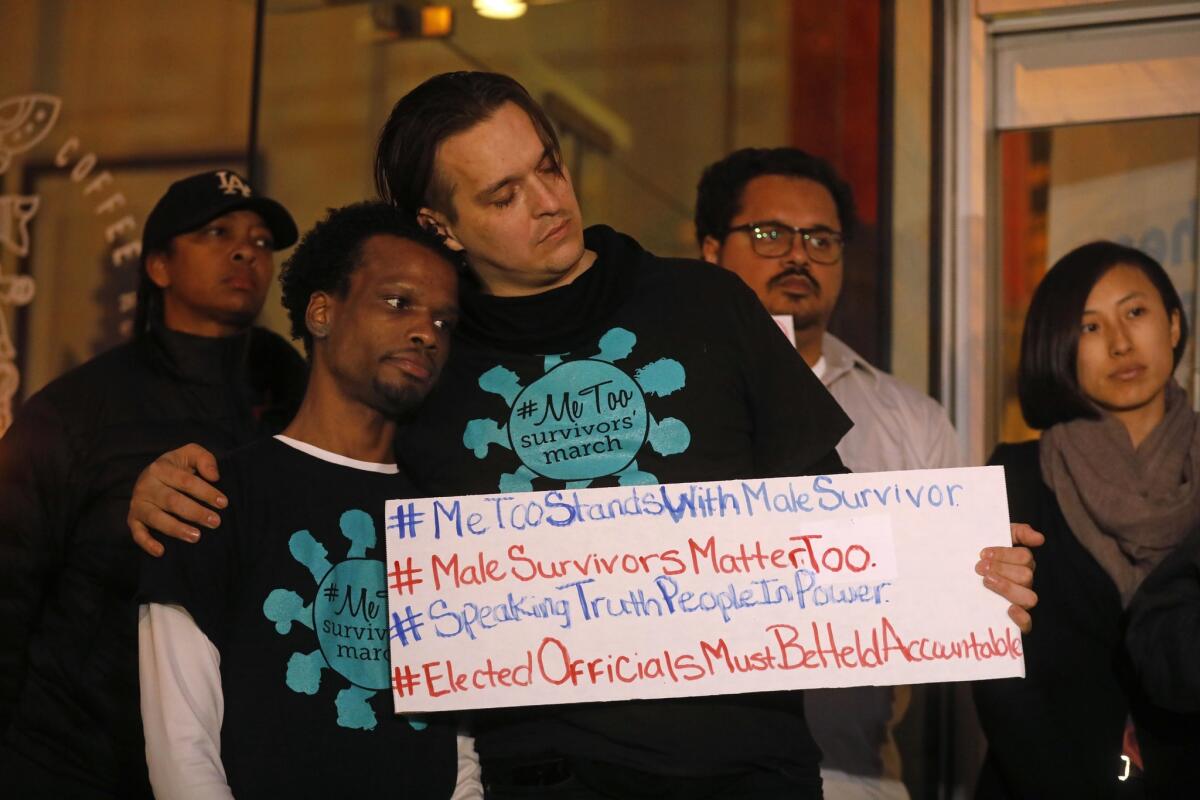
Sheriff’s Department investigators found hundreds of photographs in Buck’s home of men in compromising positions, prosecutors said.
“The detectives worked night and day putting this case together,” said Los Angeles County Sheriff Alex Villanueva. He said “Joe Doe” was able to provide investigators with vital evidence, while the two previous overdose deaths demonstrated for prosecutors a pattern of behavior.
David Cunningham, a law student and a black gay activist, welcomed the news of Buck’s arrest but questioned whether the upcoming district attorney election influenced the case.
“People want to be reelected,” he said. “Before election season, or campaign season, really started, they ignored the facts of this case. They allowed two men, two black gay men, to die in [Buck’s] home without intervening. That is a problem.”
Gemmel Moore’s death in July 2017 was initially ruled an accident, and sheriff’s deputies said they found nothing suspicious. The case was reopened the next month when Moore’s mother and friends questioned whether the drugs that killed him were self-administered.
They pointed to a journal found in Moore’s possession, pages of which were reviewed by The Times, in which the 26-year-old purportedly wrote about using crystal methamphetamine.
“Ed Buck is the one to thank,” Moore appears to have written. “He gave me my first injection of chrystal meth.”
Last year, homicide investigators asked prosecutors to consider four charges in Moore’s death: murder, voluntary manslaughter, and furnishing and possessing drugs. Dist. Atty. Jackie Lacey declined to file a case, citing insufficient evidence.
When a second man — Timothy Dean, 55 — died of an overdose in January, the Sheriff’s Department said it would take another look at the first case.
After Dean’s death, a neighbor observed black men going into Buck’s building two or three times a week, sometimes more, often at late hours. The neighbor, who asked not to be identified because of safety concerns, contacted Cannick with the information.
“I literally felt an obligation to be eyes and ears at all times,” the neighbor told The Times.
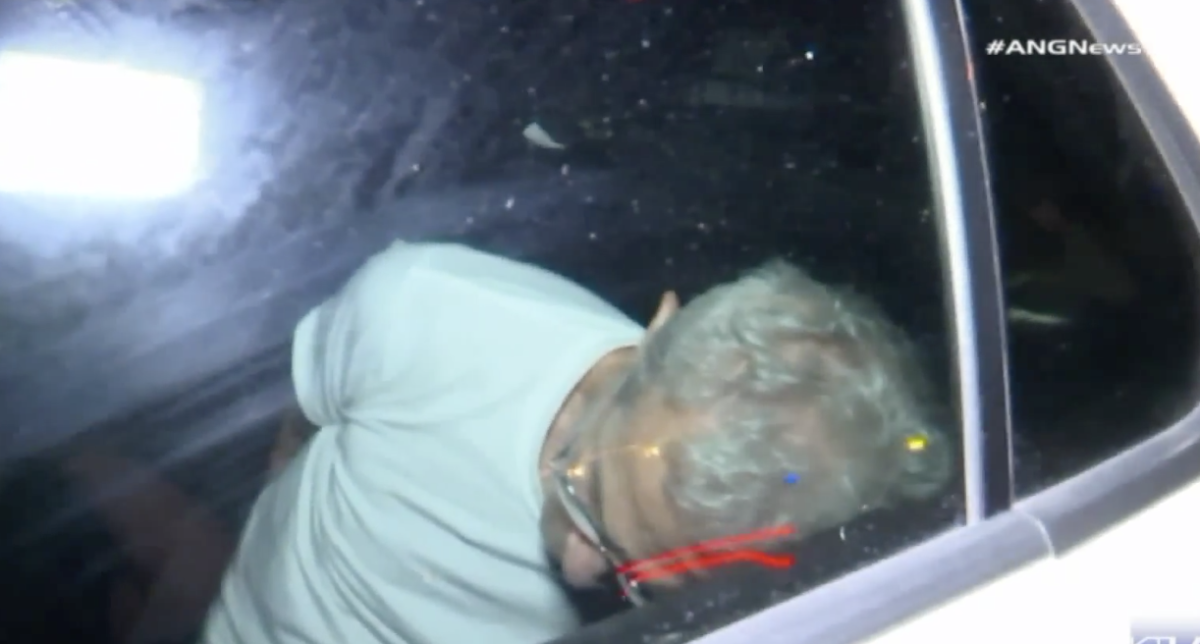
When another neighbor tipped Cannick off to Buck’s arrest Tuesday night, she told her club she had to go — and why. Members erupted in cheers.
On her way to Buck’s apartment, Cannick called the families of Moore and Dean to relay the news.
“Finally,” they responded, as they wept.
Moore’s mother, Latisha Nixon, has filed a federal lawsuit against Buck, Los Angeles County and the district attorney.
The lawsuit accuses Buck of sexual assault, battery and wrongful death, among other claims, and faults Lacey’s office for failing to prosecute Buck despite the two fatal overdoses in his apartment.
“Since then, Ms. Nixon, with the support of her community, has single handedly shouldered the entire weight of the investigation into her son’s death, mobilizing extensive outreach to identify and provide to the Sheriff’s Department nearly one dozen percipient witnesses,” Nixon’s attorneys wrote in court papers filed this summer. “Each of these Black gay witnesses shared independently corroborating accounts about sexually violent and predatory meth-fueled encounters with Mr. Buck in his West Hollywood apartment.”
Buck’s attorney, Amster, has written in court papers that Nixon’s lawsuit is “replete with allegations that cannot be supported by admissible evidence, spurious accusations unsupported by facts, and a character assassination.”
Amster noted in court papers that Moore was an adult and that his mother was not present for the alleged conduct, arguing that she has little standing to sue Buck.
In a ruling issued last week, U.S. District Judge Cormac J. Carney dismissed several claims against Lacey and her office but gave attorneys for Moore’s mother two weeks to amend their lawsuit.
The judge mostly quashed efforts by Buck’s attorneys to throw out the claims against him but dismissed the wrongful-death and hate-violence claims.
The district attorney’s office declined to comment Wednesday about whether Buck could face additional charges in Moore’s or Dean’s deaths.
Cannick said she will keep pushing for that to happen.
“This isn’t over,” she said. “This is really just the beginning.”
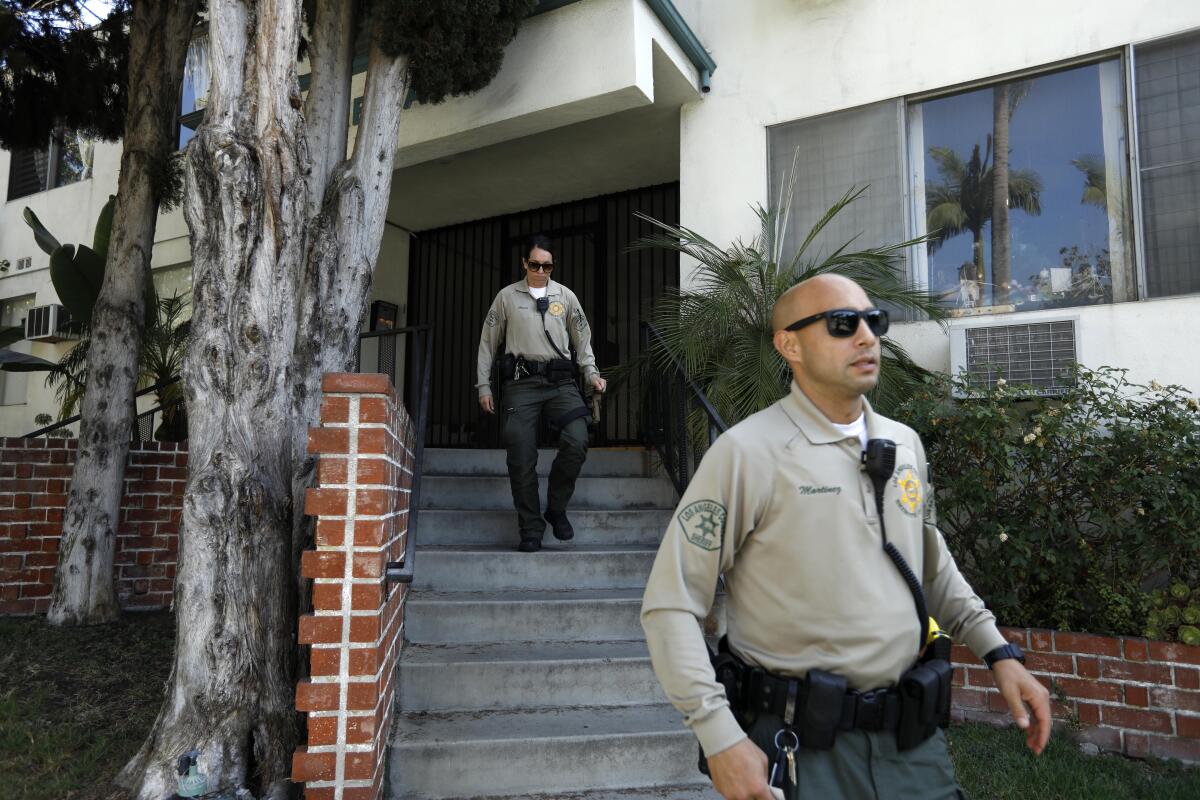
More to Read
Sign up for Essential California
The most important California stories and recommendations in your inbox every morning.
You may occasionally receive promotional content from the Los Angeles Times.
